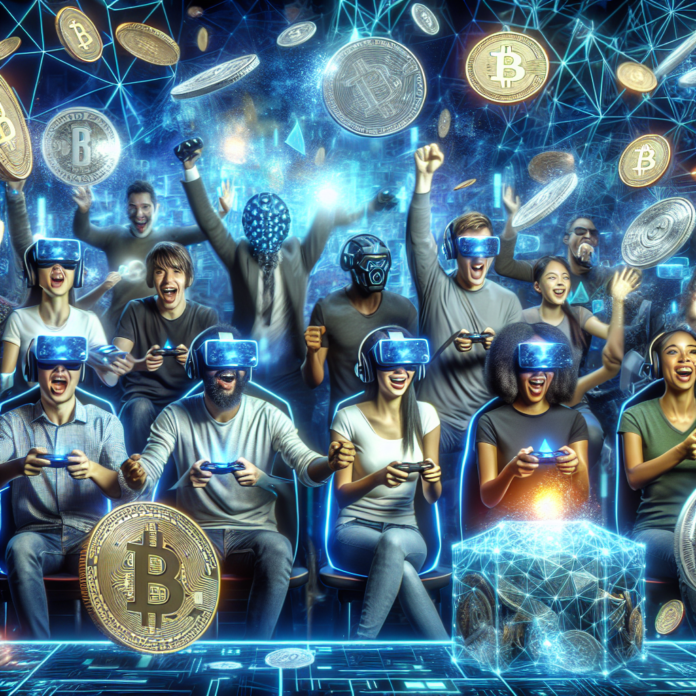The gaming industry is no stranger to evolution and innovation, continuously adapting to incorporate technological advancements. Cryptocurrencies have emerged as a potent force, capable of reshaping gaming economies and providing players with a level of financial control previously unimaginable. In this piece, we’ll delve into the dynamic ways in which digital currencies are influencing the gaming sector and redefining virtual economies.
The Emergence of Play-to-Earn Models
Cryptocurrencies are at the heart of the burgeoning play-to-earn (P2E) gaming model, where players can earn real-world value through in-game achievements. Unlike traditional games, where in-game currency has little to no real-world value, P2E games reward players with tradeable cryptocurrencies or NFTs that can be exchanged on various platforms.
Enhanced Ownership and Trade
One of the revolutionary aspects of cryptocurrencies in gaming is the true digital ownership they grant to players. Through blockchain technology, gamers can possess unique assets that can be sold or traded on external markets. This opens up income-generating opportunities and adds depth to in-game economies.
Interoperability Between Games
Cryptocurrencies and blockchain technology herald a new era of interoperability within the gaming industry. For the first time, assets acquired in one game could potentially be utilized in another, provided the games operate on compatible blockchain systems. This breaks down barriers and creates expansive virtual economies spanning multiple gaming universes.
Decentralized Gaming Ecosystems
Cryptocurrency-driven games are often part of decentralized networks, affording players unprecedented influence over the game’s development and governance. Through token-based systems, players can propose and vote on changes, fostering a collaborative community around their favorite titles.
Companies Pioneering the Integration of Cryptocurrency in Gaming
Enjin
Enjin (enjin.io) is at the forefront of incorporating blockchain into gaming. They provide a suite of tools for creating and managing digital assets that can be integrated into games, enabling developers to create blockchain-based in-game items and currencies.
Decentraland
Decentraland (decentraland.org) is a virtual reality platform powered by the Ethereum blockchain. Users can buy, sell, or trade virtual real estate, creating an immersive experience combined with tangible asset ownership.
The Sandbox
The Sandbox (sandbox.game) is a community-driven platform where creators can monetize voxel assets and gaming experiences on the blockchain. It presents a unique virtual world where players can play, build, own, and govern a shared space.
Axie Infinity
Axie Infinity (axieinfinity.com) is a P2E game that has taken the crypto gaming world by storm. With its economy built around tradeable NFT creatures known as Axies, it exemplifies the possibilities of integrating cryptocurrency with interactive digital experiences.
In summary, the integration of cryptocurrencies into the gaming industry is launching an exciting trajectory for virtual economies. Cryptocurrencies are not only driving innovative business models like play-to-earn but are also empowering players with true ownership, inter-game asset transferability, and a stake in the games they love. As the line between the virtual and real economies continues to blur, we’re witnessing the dawn of a new era in gaming – one where the digital realms we escape to offer both entertainment and economic opportunity.




 AGF-B.CO
AGF-B.CO